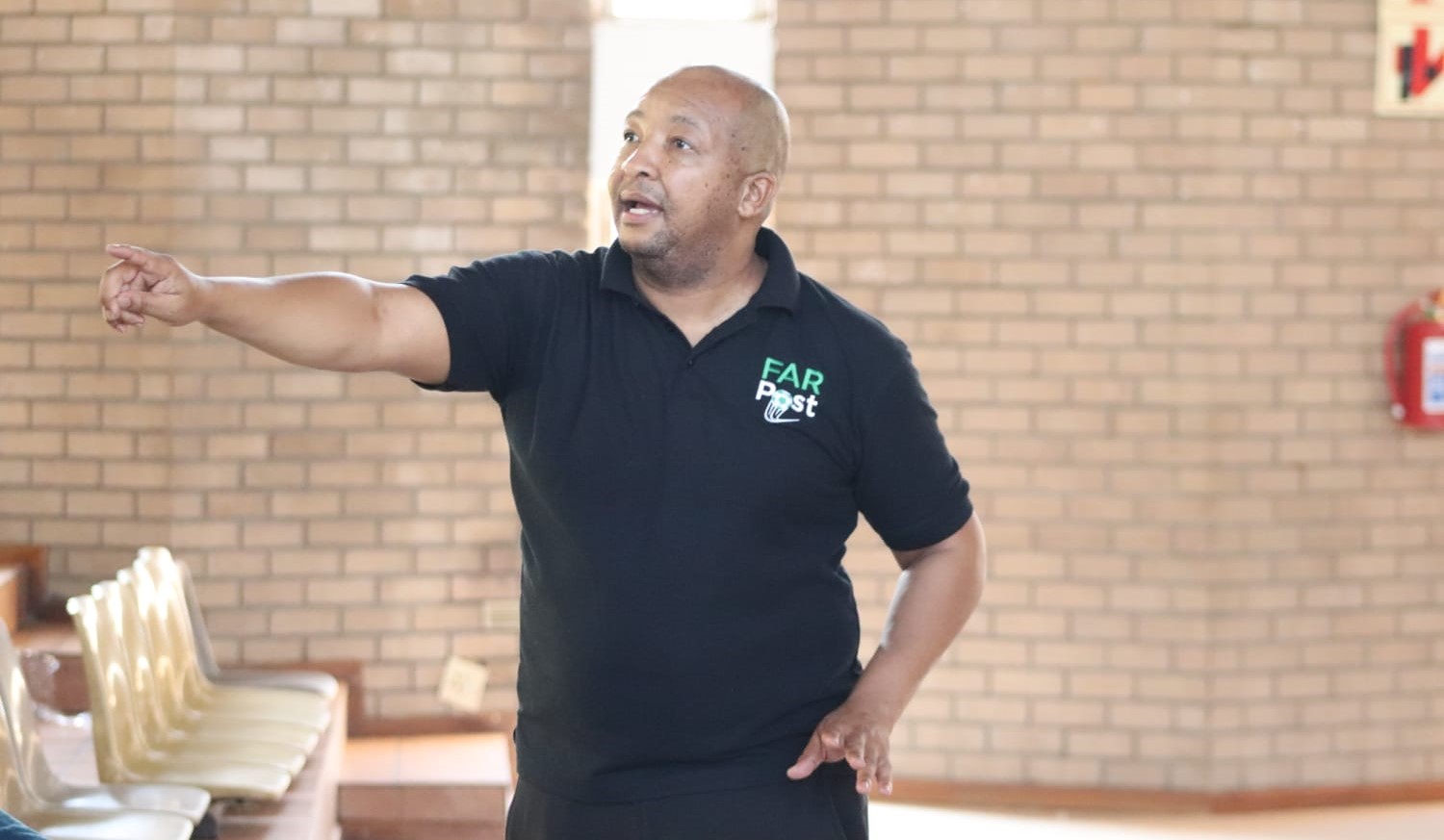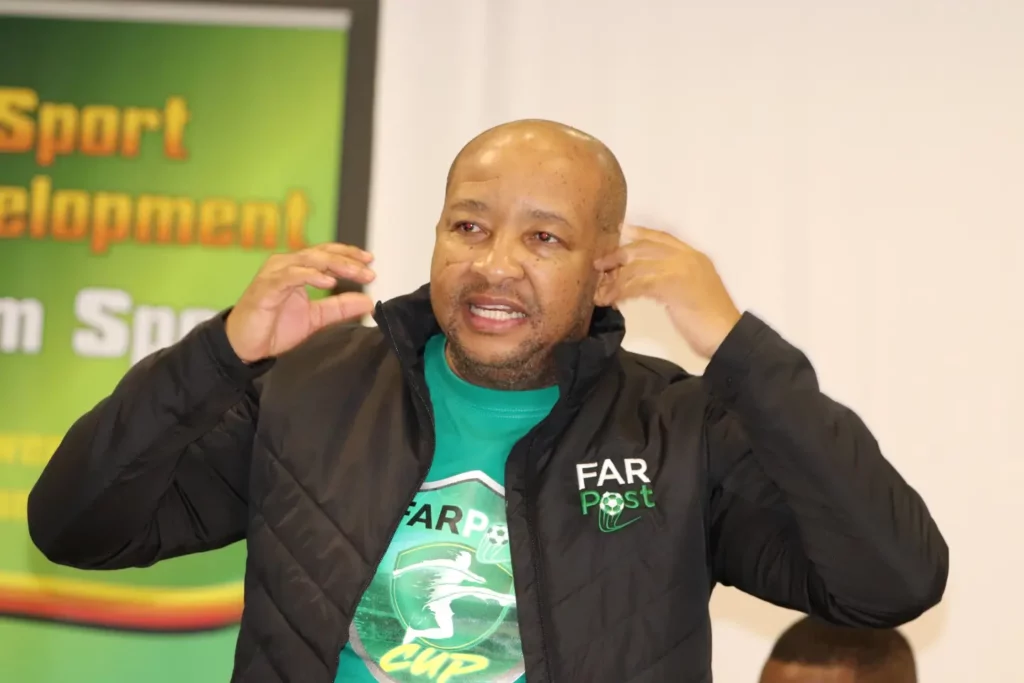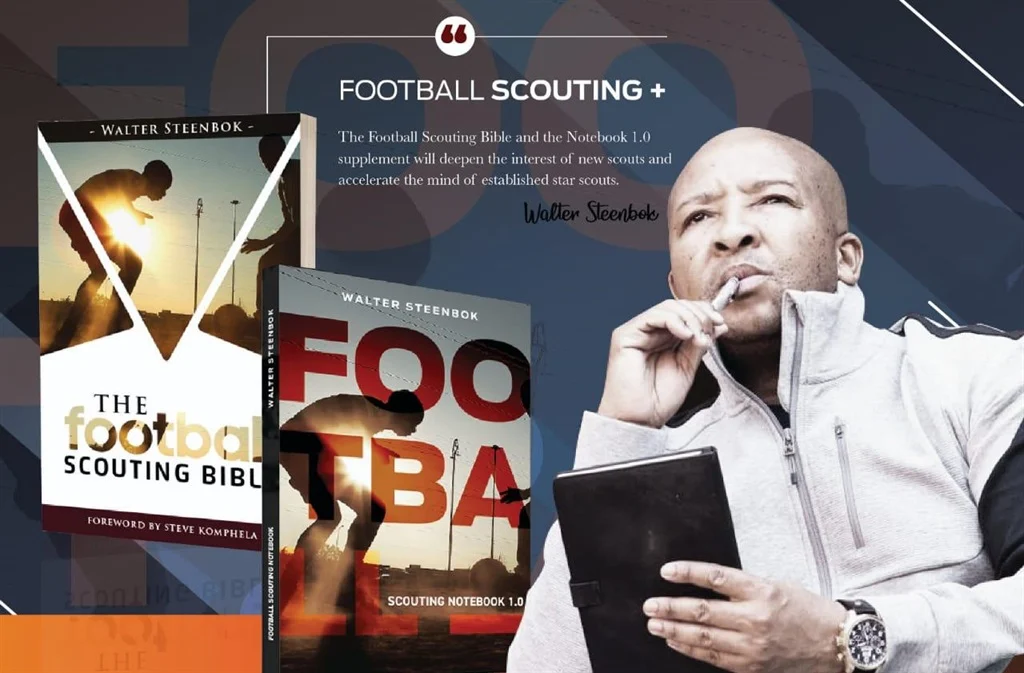NEWS
The devoted apostle of the football scout cult |
Published
3 years agoon
By
SA LIVE NEWS
“There are decades where nothing happens, and there are weeks where decades happen,” Vladimir Ilyich Lenin was once quoted as saying.
When the erstwhile Russian revolutionary spoke these words, he was, of course, talking about the world of politics, that cutthroat world in which sometimes the fate of men and nations is decided by shadowy men in dark corridors.
But if you ask Walter Steenbok, Lenin might as well have been referring to the world of talent scouting.
THE WORLD OF A SCOUT
This is the world in which a man travels around the globe searching for that one hidden gem, that rough diamond that can be polished for display in some of the world’s hallowed arenas.
This process is painstaking. For long periods, nothing seems to happen, and there is nothing one can do about that. It is not because of a shortage of players. Football’s problem is an oversupply of talent and not a lack of it.
Throw a stone in any part of the world, and you will hit a lad with a ball at his feet and hunger in his belly. This is not only hunger that comes from a lack of food – granted that some of the greatest footballers that the world has ever seen have come from extreme impoverishment. No.

This is a different kind of hunger. It is a hunger to chase an oval-shaped piece of leather from dusty streets all the way to superstardom. It is a hunger that you find everywhere, from the Favelas of Rio de Janeiro in Brazil to the shacks of Khayelitsha in the Western Cape, South Africa.
Out of millions of these kids, a scout must find the ones that truly have it in them to shine. The ones whose very walk screams “superstar”. In this process of unearthing what is hidden or finding a needle buried in a haystack, Steenbok excels.
In the foreword to Steenbok’s gift to the world of football, a book titled The Football Scouting Bible, the wordy Steve Komphela writes:
“The football scouting Bible is a complete guide to a chronological way of conducting talent scouting using different pathways from the early onset till stardom and maturation.
“It also focuses more on where this scouting could be made, when and how to search for this talent successfully. Almost combining the terrain so delicately using the right combo for different terrains.”

Komphela has always been generous with his use of the English language, but when it comes to his appraisal of Steenbok and his book, not a word of the Queen’s language was wasted in that preamble. After all, the only way to evaluate a scout is by looking at the talent that he has unearthed.
A BSc from the University of Western Cape majoring in microbiology and biochemistry, Steenbok approaches talent scouting like it is an exact science. He just knows when he has the right player in his sights.
“Over time, you develop instinct and finesse to spot the right ones,” he tells FARPost.
However, sometimes the discovery of a player can all be down to chance. Take, for example, the almost accidental discovery of Knowledge Musona while playing in a curtain-raising match back in Harare, Zimbabwe, in 2009.
THE SCOUTING OF MUSONA
“We were looking for a defender, and Nigel Munyati came with Mark Dullivard to our hotel to beg us to come and watch their curtain-raiser in which Knowledge and Khama (Billiat) were playing for Aces,” Steenbok recalls.
“We saw Knowledge; he scored two goals, Khama scored one, but he was involved in the other three goals. Physically, Knowledge was ready. Khama wasn’t ready; that’s why we left him.”
Interestingly, the Smiling Assassin, as Musona grew to be known after terrorising PSL defences, has gone on to play in Germany, Belgium and Saudi Arabia.

For several years, he was the man who wore his national team’s armband, leading an array of stars, including Aston Villa’s Marvelous Nakamba, Real Mallorca’s Tino Kadewere and Reims’ Marshall Munetsi.
Through the years, Steenbok has learnt that it is not only a player’s ability with the ball at his feet that counts but also what he possesses between the ears.
It is something that he saw in Musona in the sweltering heat of Harare that day back in 2009.
“Scouting is an identification process; many teams – like Ajax Amsterdam – have profiling mechanisms they are using. They look for specific elements in a player.
“The technique is obviously key; it’s the one thing you’re looking for. I always think personality is also important. The player has to have a personality to succeed,” explains Steenbok as he details what the reader of his new book will learn from it.
Perhaps that explains why a 20-year-old could easily lead the line for Kaizer Chiefs so distinctly.
STEENBOK’s GREATEST HITS
Steenbok’s “greatest hits” indeed suggest that he is a man with an eye for the superstar. Besides Musona, he is the man who discovered Reneilwe ‘Yeye’ Letsholonyane when he was turning out for the unfashionable PJ Stars.
“When I was coaching Benoni United in the Premiership, together with the club owner Dumisani Ndlovu, we went out to scout for talent.
“We spotted Letsholonyane and gave him his debut in the PSL. He went on to play for Chiefs and Bafana Bafana in the World Cup,” the 50-year-old says.
In a young Yeye, Walter Steenbok saw three things – technical ability, personality and a boy who “could make the team tick” from the middle of the park.
As if to ascertain his pedigree in scouting, Steenbok, a left-back during his playing days, worked for Chiefs between 2008 and 2010 and spent the next eight years at Mamelodi Sundowns before returning to Amakhosi in 2018. He then left Naturena in 2021 to pursue other interests.
Although he refuses to receive acclaim, he has been credited with polishing Percy Tau, playing a role in bringing Gaston Sirino and Ali Meza to Sundowns during his time at the Brazilians.
From Musona to Sirino and Meza, a distinct thread runs through some of Steenbok’s products. He has never been afraid to venture outside South Africa’s borders and sometimes, even beyond the continent’s borders to look for talent.
The game’s romantics say football is a universal language, and it is a dialect that Steenbok has studied extensively. He efficiently and expertly translates it for the world to read in the Football Scouting Bible.
CHANGING THE SCOUTING NARRATIVE
“I wanted to put the scouting narrative in the South African context while using trends in Africa and Europe to write about something so close to my heart,” he explains.
Studious in scouting, he also touches on how a man like Jomo Sono has had a significant mark on scouting in South Africa, going beyond the country’s borders to unearth talents such as former Zimbabwe captain Benjani Mwaruwari and Zambia’s Chris Katongo.
“Scouting has always been there, and I thought when I got the opportunity, I wanted to tell the narrative from an African perspective,” he says.
While the idea of roaming the world searching for the next football prince might sound adventurous and dashing, the world has its hazards, and on one of his travels, Walter Steenbok came close to losing his life.
“His line of work in scouting exposed him to rigorous travelling schedules in Africa, South America and Europe,” says Advocate Phemelo Sehunelo, who owned Basotho Tigers, the first club coached by Steenbok.
THE ADVOCATE CONTIUES…
“He had serious health challenges and nearly suffered death and again, I intervened through the mercy of the Lord to help this brother resurrect his beautiful journey to deliver his God-given exploits to mankind.”
Steenbok is one of the privileged few who have experienced football at various levels – he has been a player, a coach, an opposition analyst, an international scout, a coaching educator and a scouting programme designer.
A life in charge of a PSL club might look glamorous, but it is not what it appears.
“I was fortunate to have played the game. I then grew into scouting, but it’s also being open-minded, being creative and always looking for opportunities,” says the man with a post-graduate higher education diploma and two Masters degrees.
“I’ve had an opportunity to coach in the PSL; I was swayed into scouting by many factors I saw at Sundowns. But, Sudesh Singh seconded me to go to the scouting department from the Sundowns academy.”
Growing up, sport was always a passion, drifting from the tennis court to the boxing ring and sometimes a bit of ping pong [table tennis]. “Sport has always been something very dear to my heart. I didn’t like playing football, but you couldn’t avoid it because it’s everywhere in the township,” he says.
PASSION FOR SPORTS
Over 11 chapters and 224 pages of The Football Scouting Bible, it is clear that he is a devoted apostle of the cult of football scouting.
But for now, Steenbok will be eager to take the South African game forward following his appointment as SAFA technical director. He replaces Neil Tovey, whose five-year tenure ended in August 2020.
From being a player, coach, scout, and now technical director, Steenbok’s scope of work is now broader and overarching, that of giving a blueprint on how South Africa should go about its football philosophy, coaching education, coaches, youth and women’s football development.
Based on his scouting pedigree, Steenbok looks more than capable of stepping in the big shoes of the celebrated Bafana Bafana captain Tovey at SAFA House.
Source Link The devoted apostle of the football scout cult |
